Recognizing that behavior comes not only from understanding, but also from attitudes cultivated in outdoor settings that elicit visceral feelings toward nature, outdoor educators have unique opportunities to make sustainability comprehensive, accessible, and relevant. Yet the principal metaphor underlying outdoor education in general, and the Leave No Trace (LNT) program in particular, may be counterproductive to fostering environmentally and […]
Continue ReadingThis work proposes a novel theoretical framework for sustainability education and explores four possible applications of the framework. Insights from complexity and complexity education elide with patterns from nature to birth four patterns of regenerative, emergent education. In this work I explore these four natural systems models of emergence and apply them to education. For […]
Continue ReadingDear JSE Readers, Welcome to this evocative issue of the Journal of Sustainability Education whose focus is the very apt theme, “Learning and Leading Sustainability.” We say this is apt because we see much mention in the national political dialogue—if we dare to call it dialogue—about the importance of education to the future of the […]
Continue Reading
Sponsoring the Journal of Sustainability Education The Journal of Sustainability Education is actively seeking partners, sponsors, and donors to collaborate on moving the field of sustainability education outward and deeper. The Journal is a premiere publication with dynamic content: a blend of peer reviewed and timely interviews and media pieces that draws 700,000 web views per year. […]
Continue ReadingMarch 28, 2011 Dear JSE Readers, As we enter into our second year, I continue to be moved, and even overwhelmed, by the level of interest in the future of humanity….and how that future can be made more sustainable… and how education can contribute to that process. I am every day made more humble by […]
Continue Reading
Timothy Clayton looks at the internal workings of NPO’s (New Paradigm Organizations) to see how they might respond to the experiences of operating in a world structured by capitalism and traditional business practices. His insights produce an impressive and thoughtful list of ways in which some NPO’s, despite a flashy mission statement, might not practice what they preach, and can fall into traditional modes of operation.
This essay explores the challenges facing organizations intent on fostering peace, justice, and sustainability when incorporating traditional business practices into their operational modeling. The implications of these practices on internal organizational community conditions are examined, as are the possible impacts on mission-intended transformational capacities.
Continue Reading
The generic definition of sustainable development involves using resources to meet current needs without forfeiting those of future generations. Though this definition has been criticized for being vague and vulnerable to misinterpretation, it has evolved into a paradigm that confronts the way we exist, including how we educate. I became personally acquainted with the benefits […]
Continue Reading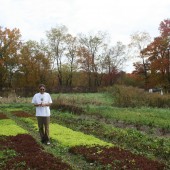
In this fascinating personal and educational journey, Terril Shorb asks us to look locally and look at our own subsistence first when we consider sustainability. While acknoledging a role for large-scale efforts based on technology, he believes in the inward solution that relies on relationships, being resourceful, working reciprocally, and finding a way of living in gifted subsistence.
Continue Reading
In this wide-ranging interview, author and professor Stephen Sterling brings forth a good case for how academic can work to see collaborations that bring policy into practice, especially at a local level.
Continue Reading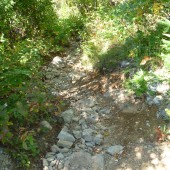
Introduction – The Human Factor When discussing “a sustainable future” most writers expect we will be using “renewable energy”, driving more efficient cars and be far more efficient in our use of resources. Those are items they recognize will have to change, (a good step) but it appears they expect the rest of life to […]
Continue Reading
In this clarion call for broad-based change in the way buildings are designed and built and occupied, Papesch and his colleagues bring attention to the broad swaths of society that are involved in this fundamental aspect of our daily lives. While bringing into play diverse groups of lay people and professionals, from poets to engineers, with a focus on architects and designers, they call for changes at every level, from the development of a Green Mindset among the population at large, to local governmental code changes to, as they argue most importantly, fundamental changes in design curricula that lead to the primacy of an interdisciplinary approach to climate change mitigation in building design.
Continue Reading
Nichols and Adams show how central design must be to sustainability by showing the numerous ways and multiple disciplinary perspectives that allow sustainability to be incorporated into the design curriculum. The program described goes far beyond a nod to “green building” technologies and shows how design is at the root of the ecological, economic, social and transformational aspects of sustainability.
Continue Reading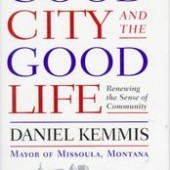
In this revealing interview, Daniel Kemmis shows how he has brought sustainability issues into play as mayor of Missoula Montana and as a leading state legislator in Montana. So often, ideas remain in the abstract, but Daniel Kemmis’ experience shows the reality of how they can be brought into the political realm, along with all its imperfections. He brings weight to the call to “act locally.”
Continue Reading
Mike Shriberg shows the power of implementing a true discussion-based curriculum in his sustainable campus course at the University of Michigan.
Continue Reading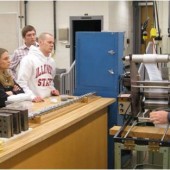
Kaufman and colleagues at Illinois State University provide us with a dynamic example of how their students work with real companies in designing marketing strategies for green products, combining both the technical development of the product with a consideration for how to bring it into the marketplace.
Continue Reading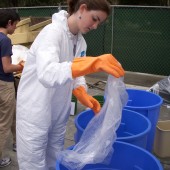
In this well-formulated case study, Miller and Close show us how student involvement and action through a group independent study course led to sophisticated analysis and real change in the handling of waste at Pomona College. They make a good case for student analysis to have equaled or better what experts might have done, with the added benefit of giving students an impactful, real-life experience with practical solutions to sustainability education problems.
Continue Reading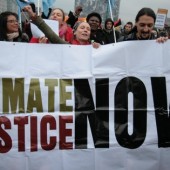
In this insightful review of Brian Tokar’s book, Randall Amster hails the work as a hopeful response to climate change that, rather than playing off of apocalyptic scenarios, envisions a future where society is re-structured not only in technological and economical terms, but also towards a more socially equitable way of life.
Continue Reading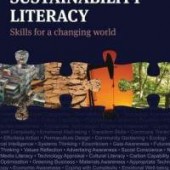
In this detailed and insightful review, Laura Henry-Stone admires the breadth and cohesiveness of this edited volume from mostly European sustainability educators. She makes a good case for bringing this wide array of pieces under one cover, for avoiding static definitions of sustainability, even the traditional “triple bottom line”, and rather looking outside reductionist approaches to find integration, inter-relation and the kind of broad strokes that the chapters in this book propose for educating and solving for sustainability.
Continue Reading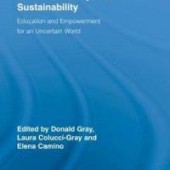
In this insightful review, John Gist gives us some perspective for thinking about science education and its potential for framing the sustainability debate. This is a brief introduction to Gray et al.’s fascinating book Science Society and Sustainability: Education and Empowerment for an Uncertain World. Gist presents the issue of uncertainty in science, in all its complexity, and finds value in the book for addressing deep understanding in a comprehensible and useful way.
Continue Reading
In their review of the Northwest Earth Institute’s A World of Health, the Frolich brothers look to place the wide-ranging issue of environmental health concerns into the every-day framework of so-called “primary health care.” They see value in the book where it addresses what can really be done, through action, and through a guided study group, to confront and change the way our interactions with the environment affect our every-day health.
Continue ReadingEducation for sustainable development (ESD), a UN initiative, is an emerging field and a movement advocating for a reorientation of education. Integration of ESD has been slow, especially in higher education. The most notable progress is marked by campus greening and research initiatives, while pedagogical innovation, the topic of this paper, has been much slower […]
Continue ReadingThis article discusses how living systems principles can inform educational design. It describes a theoretical framework for creating academic learning experiences as organic wholes that sustain learning verve. The framework is intended to aid educators in awakening a felt sensation of aliveness, vibrancy, and self-organizing creativity in a group of learners. It seeks to create […]
Continue ReadingThis case describes how four teacher candidates, placed for a year-long internship in an elementary school with a garden, learned to teach for sustainability. Evidence from the interns’ Teacher Work Samples, survey data, interviews, and observational data are used to assess the extent to which teacher candidates demonstrated the knowledge, skills and dispositions to teach […]
Continue ReadingIf educators are to effectively prepare learners with the knowledge, skills, and values they will need for creating more sustainable places and communities, a transition must be made from transmissive teaching models to transformative learning processes. But how can courses be designed or redesigned so that they create opportunities for transformational sustainability learning, and how […]
Continue ReadingHelping people learn to adopt more pro-social lifestyles usually involves persuading them to take new, beneficial actions. However, certain pro-social goals, such as achieving environmental sustainability, also require people to stop performing harmful actions—people are commonly instructed to drive less, use less electricity, and otherwise reduce the amount of resources they consume and waste they […]
Continue ReadingThis paper describes the perceived condition of access to high-speed Internet for many rural Kentuckians, and reflects on the experience of attempting to bring broadband Internet accessibility to a rural area in Kentucky. This experience is not unlike rural areas in other states however, as numerous stories were discovered over an 8-year period. The general […]
Continue ReadingSustainability is now permeating educational institutions. Yet the emerging discourse on sustainability education is in many ways caught in a modern web of theoretical, ontological, and epistemological assumptions that are incongruent with sustainability. We introduce an ecologically grounded metaphoric language rooted in living soil as an alternative regenerative framework for linking sustainability pedagogy with pedology […]
Continue ReadingThe author constructs a theory of sustainable leadership in contrast to exploitive leadership and argues that all leadership in the modern world falls somewhere on a continuum between these two extremes. The definitions developed for sustainable and exploitive leadership hinge upon the purposes toward which leadership is applied. The concept of sustainable leadership is further […]
Continue ReadingAchieving a sustainable future requires that individuals adopt different values, attitudes, habits, and behaviors, which are often learned and cemented at a young age. Unfortunately, current educational efforts are inadequate for achieving transformative action. Even programs whose primary goal is to promote responsible, pro-environmental behaviors have largely failed at creating change among students. The lack […]
Continue ReadingSince its founding, the Center for Ecoliteracy, where Zenobia Barlow is executive director and Michael Stone is senior editor, has supported and advanced education for sustainable living in K–12 schools. One of our particular concerns has been leadership and systemic institutional change. We have sought to understand both how schools can themselves change and how […]
Continue ReadingWhat kind of pedagogy could possibly be adequate to the crises of our times: global ecological disaster, intensification of deep poverty across the world, concentration of corporate power and the concomitant blows to democratic initiative and power, and an increasingly totalizing global form of civilization that depends upon detaching human beings from their practical and […]
Continue Reading